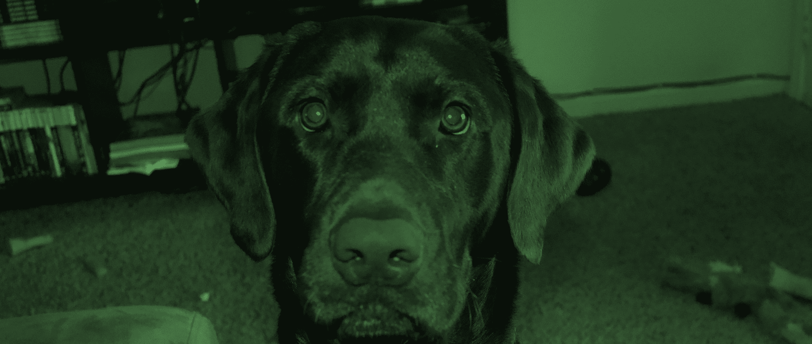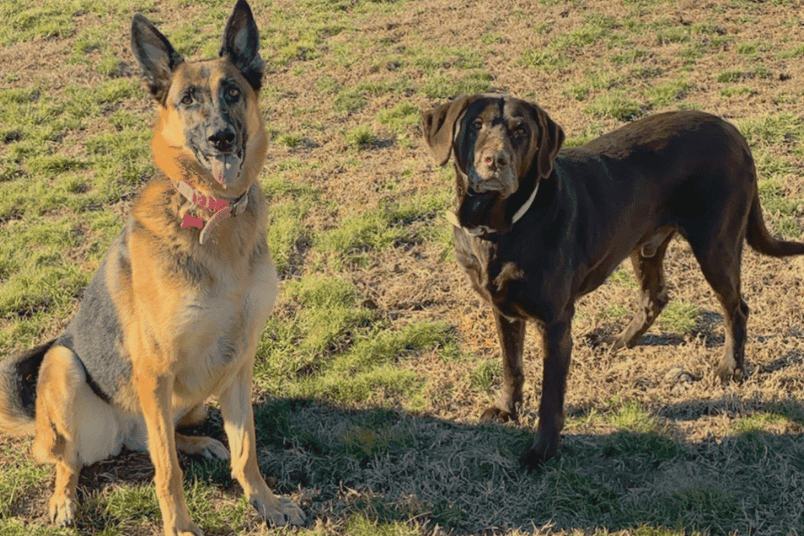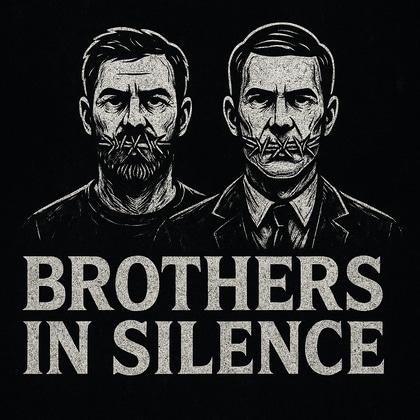In-Home Pet Euthanasia: How I Hired “Hitmen” to Handle Our Elderly Dog
Dealing with the loss of a family pet
FAMILY LIFEMENTAL HEALTH
Porkchop
6/10/202411 min read


Losing a Family Pet
The last thing in anyone’s mind when they bond with that innocent, high energy pup is that about a decade or so later (if you’re lucky) you’ll have to make one of the most difficult decisions a friend ever has to make. Oftentimes this unique relationship we build with our pets can be very difficult to handle, given pets are not just any animal. These are animals who we consider integral members of our families, providing unwavering loyalty, unconditional love, and constant companionship no matter what kind of day you may have had.
Since relationships are vastly different in general, its safe to assume everybody’s experience losing a pet is also different. A result of many factors such as the length of the bond, the circumstances of your pet’s death, as well as the individual’s personal coping mechanisms. Some people want to talk and have a lot of people around them to mourn together, some are completely opposite and will turn off their phones in order to avoid talking with ANYONE, most are a good mixture of something in between. However you choose to mourn, there is always a chance that it could lead to some misunderstanding between family members.
Psychologically, the death of a family pet can lead you to feelings of sadness, loneliness, and even depression. Anyone who had a close bond with that pet, especially those who may have leaned on the pet for emotional support, will feel the impact of this loss as it forces us to adapt any existing daily routines and rituals built around the care of our beloved pet. This loss and change of routines leaves a void, oftentimes exacerbating the sense of loss and grieving. And since our companions serve as our non-judgmental, silent confidants, the absence of this source of unconditional lobe and companionship can be extremely unsettling at best.
Outside public perception, unfortunately, varies quite a bit as well. Sometimes there is a feeling that society minimizes the effect of these losses whenever they feel the need to compare it to human loss (which tends to garner a higher level of public empathy and understanding). This can make the grieving owner isolated, making it all the more important for them to seek out supportive resources and people that recognize the legitimacy of the grieving owner’s sorrow.
Understanding the emotional impact of losing a pet is crucial for navigating the grieving process. Recognizing that pets are cherished family members whose loss deserves to be mourned can help individuals honor their feelings and begin the journey towards healing.
My Personal Reflection
It’s been about 3 weeks since I lost Burger, our 13 year old Labrador Retriever. Burger and I became great friends when I found him as a puppy, walking down a busy street in the rain. I had JUST moved to North Carolina after graduating from college and I could not afford having a dog any less than at that moment as a poor recent college grad. After a brief conversation at a police station, a week or so of putting posters everywhere, and meeting the breeders he had escaped from it was made official and he was legally allowed to be my dog.
Burger was very much a stereotypical Lab. Always had a tail wagging, was great with people and other dogs, and would NOT be the first one to give up on a good game of fetch (or a bad one to be honest… the man loved to fetch). He was there through breakups with shitty women, was there when I met my wife, when we had all of our kids, when we bought a house with a yard for him… he was seemingly there for every major event in my adult life that has brought me to the life I have now.
I won’t pretend that his passing was a shock to me, but I never really thought about the level of hurt that I would ultimately feel at the end. We truly are our pets best friends for their entire lives, while the opposite shows the sad reality that they are only our best friends for a fraction of our time on Earth… it really sucks. Age on a pet is not something that we notice on a day to day basis. It’s something that starts to sneak up on us slowly through the last years.
Burger aged seemingly entirely in his last year with us. Sure, he started getting his “distinguished” white hairs around what I called his beard, would slow down a bit when getting up in the morning, and even slowly stopped dealing with the damn stairs to go to bed at night (he started just sleeping and snoring downstairs which wasn’t his favorite place to sleep). In the span of a year he REALLY aged. The last couple of weeks he was with us weren’t the easiest, but they were time that we got with our aging boy.
His hind legs had been arthritic and stiffening for a while, making it difficult for him to get around. Until they finally gave out on a Friday night. At this point, we would just have to help him get up, and he would go about his business. But that new “feature” didn’t last too long as he stopped getting up soon after that. Over the next couple of days, I saw my Lab rapidly give up on doing everything he normally did. He eventually didn’t have it in him to try to eat or keep any water he drank down.
At this time, I had to make one of the hardest decisions I’ve ever been forced to make in order to alleviate his pain and let him rest with dignity. The odds at this point were only about to get worse, and with a heavy heart (and not being able to hold back tears) I had to contact a veterinarian to administer an in-home euthanasia on Burger. It still VERY MUCH feels like at the end I hired hitmen to come to my home and murder my best friend, but deep down I know that it was the best decision to ease HIS suffering. So a decision had to be made.
The day before the “hit”, we sat with our kids and made sure to tell them that Burger was not doing well and that they should give him as much love as they could before they went to bed. I wish I can say that I was able to go to bed, but instead I spend most hours checking in and spending time with Burger as I watched him struggling to even breathe. I wish I can say I remember every detail the next morning, but I really don’t.
My wife dropped the kids off at school and daycare then came home to be with Burger and I. I just laid on his bed with him petting him and talking to him hoping he would make a miraculous turn that he never made. I remember the “hitman” talking at me, asking when I was ready for him to do the deed. The thing is… how the fuck do I begin to answer that?! It’s been about 3 weeks and I’m still not fucking ready for some dude to kill my dog…
Now the house feels emptier. I don’t hear the sounds of a 100 pound dog moving around the house, scratching his old ears, or hearing the loud “thud” of him never so gently plopping down to take a nap. Losing a pet truly fucking sucks, but it also highlights the love and connection we are capable of showing and having.


Supporting Your Spouse Through Pet Loss
Mrs. Porkchop here... Dealing with the loss of a family pet is a challenging experience for all involved, particularly for the spouse. We have shared the love of this pet, but not quite as long as they have, so it still hurts but in a different way. Offering support through this difficult time is crucial for the grieving process. It is also important to realize that everyone grieves differently, so patience, communication, and understanding are imperative.
Open communication is crucial. You need to encourage your partner and help them through the grieving process. Everyone grieve differently. Some people want to be surrounded by others and talk through it, while others just want to be left alone to process their thoughts internally. Be aware of your partners grief and allow them to express their feelings without judgement so they can process their emotions without worry.
Sharing memories, scrolling through pictures, or creating a memorial are comforting ways to cope with the loss while also honoring the pets memory. Creating a scrapbook or photo album is an activity that can be done as a family to bring everyone together during this difficult time, while reminiscing on the good times to uplift the mood and bring some closure.
Allowing space for grief is another essential way to support your spouse and your family as a whole. Allowing everyone to grieve in their own ways, while offering your presence and support will remind them that their feelings are valid. Allowing space also allows everyone to grieve in their own time. Often, children will take longer to grieve because the younger ones don’t fully understand what is going on right away.
Supporting a spouse and family in a time of grief like this requires empathy, active listening, and most importantly, patience. But offering your support in whatever way possible will help your partner navigate this difficult time and being the healing process together.
Helping Your Kids with the Death of a Pet
We all want to protect our children’s innocence for as long as we can, and the death of a family pet can be a profoundly challenging experience for children, which is often their first encounter with loss. How do we, as parents, provide them with an age-appropriate level of support and guidance to help them navigate grief and their emotions during a difficult time. Another challenge for the grieving parents is deciding on how to best explain the concept of death to kids. All while encouraging their emotional expressions, and suggesting meaningful activities to honor their pet to aid in their healing process.
Our younger children (5 and under) were not completely aware of everything going on other than the fact that our old dog was not moving around a lot and was just laying down on his bed resting a lot more than usual. For us, the biggest point we tried to make was that they should get as much time playing and petting him before the big day. We avoided euphemisms that could create confusion (i.e., he wasn’t just “going to sleep”). We encouraged them to love him and spend his last moments enjoying him because he wasn’t going to be with us much longer. There were a few days (and there still are a few weeks out) where they didn’t quite grasp the permanence of death, but with patience, and through some tears, we explain to them that he was in pain and has passed so he is no longer in pain. We shifted their focus to all the good times they had with him instead.
For our older daughter, who pretty much grew up with our old Labrador, we had to take an equally honest approach, since she understood more complex concepts than her siblings. Some older kids may have questions about death, but since we had already gone through the loss of a guinea pig and a few Oscar fish she understood the general premise of what was happening. If your kid has any questions or concerns, it is important to address them with honesty and directly. As for the grieving, every kid will be different, but we tried to encourage her to share how she felt and then to work on a project to honor our old boy.
As parents, being a good role model can impact how your children go through this shitty period of grieving. Show them its ok to mourn and your own feelings of sadness. Acknowledging that death fucking sucks is completely fine and being open with your kids can encourage a safe environment of openness and trust.
Addressing the Grief of Remaining Pets
Many people do not realize that remaining pets may also go through a period of mourning the loss of their companion as well. Pets form a strong bond with their housemates and can exhibit the signs of mourning when a pet is lost. These signs of mourning can take different shapes; for example, changes in behavior, appetite, and even physical health.
The biggest indicator that our remaining dog was going through a period of grieving were the changes in her normal behavior. Grieving pets may become withdrawn, less playful, or exhibit signs of depression. Some pets may search for their lost companion, exhibiting restlessness or increased vocalizations. For us the biggest change was her change in appetite, as she became less and less interested in food overall (even table scraps that she normally never gets).
To help her cope with the loss of her companion, we tried to maintain her normal routine as much as we could. Consistency provides a sense of security and normalcy, which can be comforting during a time of loss. We also offered extra affection and attention to help alleviate her feelings of loneliness and sadness. Spending quality time with your pet, engaging in activities they enjoy, and providing a comforting presence can make a significant difference in their emotional well-being.
Sometimes introducing new toys, activities, or food can be beneficial in helping your pet cope with their grief. New toys and activities can sometimes be the kickstart they need since these can provide mental stimulation and serve as positive distractions. Interactive toys, puzzle feeders, or new games can engage your pet's mind and help redirect their focus from their loss. New foods can sometimes entice a grieving pet to try and eat to hopefully get them back to normalcy.
Some pet owners decide to introduce a new pet as a “replacement” right away; however, this is a decision that should not be made lightly or on an impulse. Don’t forget that your grieving pet still has a pack… YOU are that pack.
It’s important to take into account everything before bringing that new pet to a grieving home. Understanding and addressing the grief of any remaining pets is an essential part of the healing process for the entire family. Observe their behavior, keep their routine as best as you can, provide some extra love and affection, and keep them engaged with good activities and you can help your pet get through this time as well.
Practical Tips for Dealing with a Pet’s Death
Coping with the loss of a family pet can be an emotionally challenging experience. However, there are several practical steps that can help you navigate this period of grief. One meaningful way to honor your pet’s memory is through memorialization. Creating a tribute, such as a photo album, planting a tree, or crafting a piece of art, can serve as a lasting reminder of the joy your pet brought into your life. These activities provide a tangible way to celebrate the special bond you shared and keep your pet’s memory alive.
Considering professional counseling can be another valuable step in your healing journey. Grief counselors and therapists are trained to help individuals process and work through their emotions. They can provide personalized strategies and coping mechanisms tailored to your specific situation, which can be incredibly beneficial in managing the intense feelings associated with pet loss.
Support groups, both in-person and online, offer a platform where you can connect with others who are experiencing similar losses. Sharing your story and hearing from others can validate your feelings and provide a sense of community and understanding. Many people find comfort in knowing they are not alone in their grief.
It is also crucial to prioritize self-care during the grieving process. Grief can take a toll on both your mental and physical well-being. Ensuring that you get adequate rest, maintain a balanced diet, and engage in activities that bring you joy can aid in your emotional recovery. Mindfulness practices, such as meditation and yoga, can also be effective in managing stress and promoting emotional balance.
For additional support, numerous resources are available, including books, websites, and hotlines dedicated to pet loss. These resources can offer further guidance and comfort as you navigate your path to healing. By taking these practical steps, you can honor your pet's memory, seek the support you need, and foster your own well-being during this challenging time.
